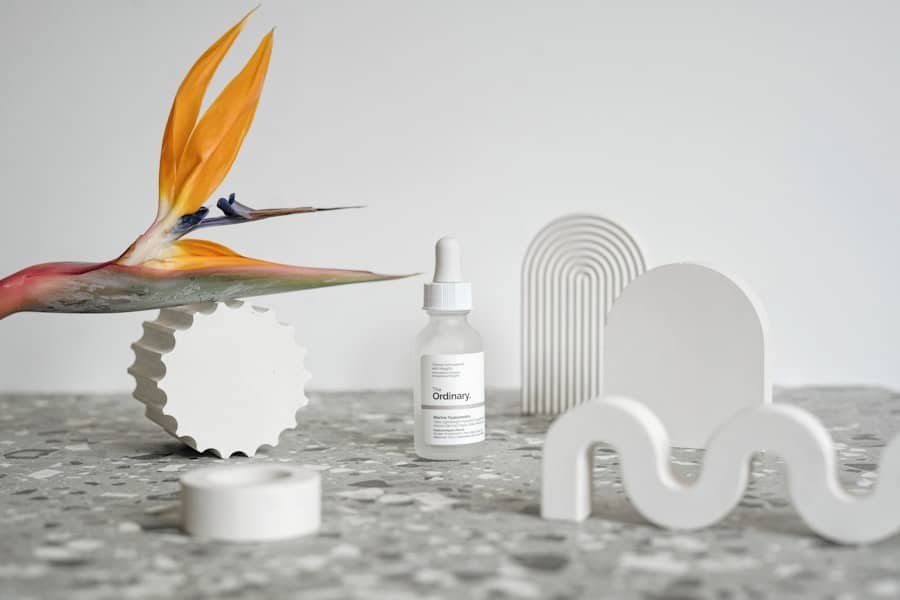Peppermint oil has gained popularity among pet owners for its potential benefits, particularly for small animals like rats. You may find that this essential oil can serve various purposes, from providing relief from respiratory issues to acting as a natural pest repellent. The invigorating scent of peppermint is not only pleasant for humans but can also be beneficial for your furry friends.
When used appropriately, peppermint oil can help improve the overall well-being of your rats, making it a valuable addition to their care routine. One of the primary benefits of peppermint oil is its ability to alleviate respiratory problems. If your rats are experiencing congestion or other respiratory issues, the menthol in peppermint oil can help open up their airways, making it easier for them to breathe.
Additionally, the oil has antimicrobial properties that can assist in keeping their living environment clean and free from harmful bacteria. This dual action makes peppermint oil a versatile tool in promoting your rats’ health and comfort.
Key Takeaways
- Peppermint oil can benefit rats by repelling pests, soothing respiratory issues, and providing a calming effect.
- It is important to dilute peppermint oil for rats to avoid potential skin irritation and respiratory problems.
- The correct dosage of peppermint oil for rats depends on factors such as the rat’s size, age, and health condition.
- Factors to consider when administering peppermint oil to rats include the method of application, frequency, and potential interactions with other medications.
- Potential risks and side effects of peppermint oil for rats include skin irritation, respiratory issues, and digestive problems.
The Importance of Diluting Peppermint Oil for Rats
Safety First
You should always dilute peppermint oil with a carrier oil, such as coconut or olive oil, to ensure it is safe for your pets. This step is vital in preventing any potential irritation or toxicity that could arise from direct exposure to concentrated oils.
Control the Potency
Diluting peppermint oil not only reduces the risk of adverse effects but also allows you to control the potency of the oil. By adjusting the ratio of peppermint oil to carrier oil, you can tailor the application to suit your rats’ specific needs.
Maximize Benefits, Minimize Risks
This careful approach ensures that you maximize the benefits while minimizing any potential risks associated with using essential oils on small animals.
Determining the Correct Dosage of Peppermint Oil for Rats

Determining the correct dosage of peppermint oil for your rats is essential for ensuring their safety and well-being. Since rats are small creatures, even a tiny amount of essential oil can have a significant impact on their health. As a general guideline, you should start with a very small dose—typically just a drop or two of diluted peppermint oil mixed with a carrier oil.
Observing your rats’ reactions after administration will help you gauge whether the dosage is appropriate or if adjustments are necessary. It’s important to remember that every rat is different, and factors such as age, weight, and overall health can influence how they respond to peppermint oil. Therefore, you should always err on the side of caution when administering any new substance.
If you notice any signs of discomfort or adverse reactions, discontinue use immediately and consult a veterinarian for further guidance.
Factors to Consider When Administering Peppermint Oil to Rats
When considering administering peppermint oil to your rats, several factors come into play that can affect their response. One significant factor is the individual temperament and health status of each rat. Some rats may be more sensitive to scents and oils than others, so it’s essential to monitor their behavior closely after introducing peppermint oil into their environment.
If you notice signs of distress or discomfort, it may be best to avoid using it altogether. Another factor to consider is the environment in which your rats live. If they are housed in a small space, the concentration of peppermint oil may be more potent than in a larger area.
You should ensure proper ventilation when using essential oils around your pets, as this will help disperse the scent and reduce the risk of overwhelming them. Additionally, consider any other pets you may have in your home; some animals may be more sensitive to essential oils than others.
Potential Risks and Side Effects of Peppermint Oil for Rats
While peppermint oil can offer various benefits, it is essential to be aware of potential risks and side effects associated with its use on rats. One of the most common concerns is skin irritation, which can occur if the oil is applied directly without proper dilution. You should always perform a patch test on a small area of your rat’s skin before applying it more broadly.
If you observe any redness or irritation, discontinue use immediately. In some cases, peppermint oil may cause respiratory distress in sensitive rats. If you notice any signs of difficulty breathing, coughing, or excessive sneezing after introducing peppermint oil into their environment, it is crucial to remove them from the area and seek veterinary advice.
Being vigilant about your rats’ reactions will help you identify any adverse effects early on and take appropriate action.
Different Methods of Administering Peppermint Oil to Rats

There are several methods for administering peppermint oil to your rats, each with its advantages and considerations. One common approach is to use a diffuser or vaporizer to disperse the scent throughout their living space. This method allows for a gentle introduction of the aroma without overwhelming your pets.
However, ensure that the area is well-ventilated and that your rats have the option to move away from the scent if they choose. Another method involves applying diluted peppermint oil topically on your rats’ fur or bedding. This approach can help repel pests while providing the benefits of aromatherapy.
However, you should always ensure that the oil is adequately diluted and perform a patch test first. Additionally, you might consider adding a drop or two of diluted peppermint oil to their water or food; however, this should only be done under veterinary guidance to ensure safety.
Monitoring the Effects of Peppermint Oil on Rats
Once you’ve introduced peppermint oil into your rats’ routine, monitoring their reactions is crucial for ensuring their well-being. Keep an eye on their behavior and physical condition over the following days after administration. Look for any changes in appetite, energy levels, or social interactions that may indicate how they are responding to the oil.
If you notice any unusual behavior or signs of distress, it may be necessary to adjust the dosage or discontinue use altogether. Additionally, consider keeping a journal to track your observations over time. Documenting your rats’ responses can help you identify patterns and determine whether peppermint oil is beneficial for them.
This information will also be valuable if you decide to consult a veterinarian about your experiences and any concerns you may have regarding their health.
Consulting a Veterinarian for Guidance on Peppermint Oil Dosage for Rats
Before introducing peppermint oil into your rats’ care routine, consulting a veterinarian is highly recommended. A qualified vet can provide personalized advice based on your pets’ specific needs and health conditions. They can help you determine an appropriate dosage and dilution ratio tailored to your rats’ size and sensitivities.
Moreover, a veterinarian can guide you on potential interactions with other medications or treatments your rats may be receiving. This professional insight will ensure that you are making informed decisions about your pets’ health and safety while using peppermint oil as part of their care regimen.
Tips for Safely Using Peppermint Oil for Rats
To safely incorporate peppermint oil into your rats’ lives, consider following these tips: First and foremost, always dilute the oil before use; this step cannot be overstated as it significantly reduces the risk of irritation or toxicity. Secondly, introduce the scent gradually; allow your rats time to acclimate to new smells without overwhelming them. Additionally, ensure that your rats have access to fresh air and space to escape if they find the scent too strong.
Regularly monitor their behavior and health after introducing peppermint oil into their environment; this vigilance will help you catch any adverse reactions early on. Lastly, always keep essential oils out of reach when not in use; safety should be your top priority.
Alternatives to Peppermint Oil for Rats
If you’re hesitant about using peppermint oil or if it doesn’t seem suitable for your rats, there are several alternatives worth considering. Herbal remedies such as chamomile or lavender can provide calming effects without the potential risks associated with essential oils. These herbs can be offered in dried form or as teas (cooled) mixed with their food or water.
Another alternative is using natural cleaning products that contain safe ingredients for small animals; these products can help maintain a clean living environment without exposing your pets to harsh chemicals or concentrated oils. Always research any alternative thoroughly before introducing it into your pets’ routine.
Finding the Right Balance of Peppermint Oil for Your Rats
In conclusion, while peppermint oil can offer various benefits for your rats when used correctly, finding the right balance is crucial for ensuring their safety and well-being. By understanding its advantages and potential risks, diluting it properly, determining appropriate dosages, and monitoring their reactions closely, you can create a positive experience for both you and your furry companions. Always prioritize consulting with a veterinarian before introducing any new substances into your pets’ lives; this professional guidance will help you navigate any uncertainties and make informed decisions about their care.
With careful consideration and attention to detail, you can harness the benefits of peppermint oil while keeping your beloved rats happy and healthy.
If you are looking for the best pest control service in Baltimore, Maryland, you may want to check out this article for more information. In the meantime, if you are wondering how many drops of peppermint oil to use for rats, be sure to read our guide for helpful tips and advice. Peppermint oil can be a natural and effective way to repel rodents from your home without the use of harmful chemicals.
FAQs
What is the recommended dosage of peppermint oil for rats?
The recommended dosage of peppermint oil for rats is 1-2 drops of oil per 1 liter of water.
Is it safe to use peppermint oil for rats?
Peppermint oil can be safe for rats when used in moderation and diluted properly. It is important to consult with a veterinarian before using any essential oils with pets.
What are the potential benefits of using peppermint oil for rats?
Peppermint oil is believed to have natural insect-repellent properties and may help to deter pests such as mites and fleas in rat cages. It may also have a calming effect on rats.
Are there any risks associated with using peppermint oil for rats?
Using undiluted or excessive amounts of peppermint oil can be harmful to rats. It is important to dilute the oil properly and use it in moderation to avoid any potential risks.
How should peppermint oil be administered to rats?
Peppermint oil can be added to the rats’ drinking water, but it is important to ensure that the oil is properly diluted to avoid any adverse effects. It can also be diffused in the air in the rats’ living environment.
